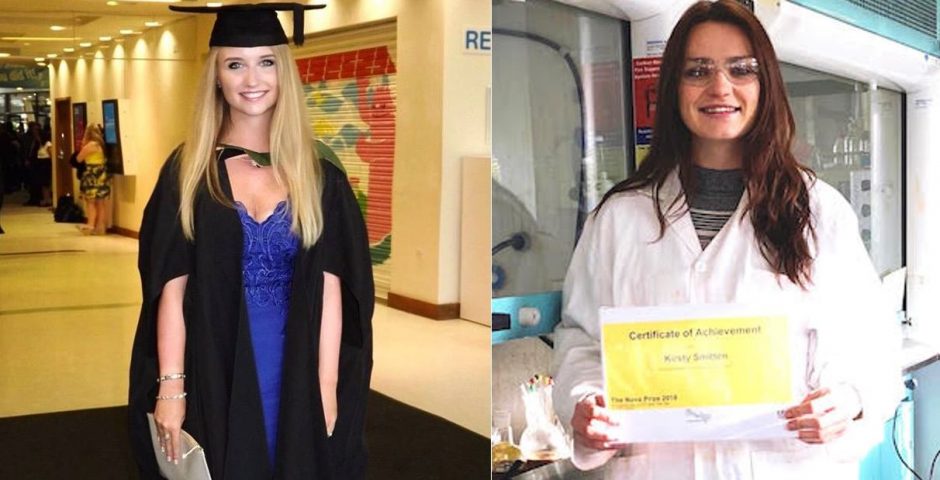
Two Sheffield PhD students will present their work at Parliament next month
They visit the House of Commons on 13 March
Two PhD students from The University of Sheffield will present their research at a science event in Parliament next month.
Felicity Noakes, halfway through the second year of her PhD, and Kirsty Smitten, in the third year of her course, will take part in the STEM for Britain poster competition at the House of Commons on 13 March.
Both students are from the Thomas research group, which is named after their professor.
There will be two poster exhibitions, a reception, and prizes of £2,000, £1,000 and £750 for each of the five subject areas included at the event.
Felicity and Kirsty's research focuses on two of the biggest challenges in the pharmaceutical industry today – anticancer and antimicrobial drugs respectively.

Felicity said she was too excited to sleep when she found out she had been shortlisted. A number of people close to her have had cancer, and she feels she can dedicate her work to them.
"I’ve known too many people in my life to be affected by this disease and dedicating my research to them makes it that bit more meaningful," she said.
"I've always wanted to work in cancer research. My multidisciplinary PhD has opened doors and given me the opportunity to acquire the biological skills I need. There aren’t many people that get to say they synthesise a drug and test it themselves so I feel privileged to have the opportunity to do that.
"However, if you’d have said to me a year ago I would be presenting my work in Westminster I wouldn’t have believed you. It’s amazing what you can achieve in a year. I’m looking forward to meeting other early career researchers and presenting my work to MPs who have the power to influence change."
According to the Centre for Disease Control and Prevention (CDC), ovarian cancer causes the most deaths among cancers of the reproductive system, and is ranked fifth highest in cancer related deaths.
The drug Felicity is working on is active against ovarian cell lines, one of which is resistant to the current clinically available treatment. Tumour resistance is threatening existing cancer treatment, so there is a growing focus on alternative treatments with different modes of action.
Kirsty has already won the Nova Prize for Chemistry, and focuses her research on finding alternatives to organic antibiotics.

She has synthesised compounds against the two bacteria which have been identified by the World Health Organisation as 'priority one: critical'.
Kirsty said: "Most of the drugs that you see at the minute are organic, but we work in inorganic, so it’s quite a step away from the norm."
"To think that we could change the landscape of pharmaceutical drugs for the future is really exciting."
The students are excited about the competition, and Felicity is grateful for the support they have received from the chemistry department and their supervisors as pioneering women in science.
She said: "We were at a conference and Kirsty was saying we look like we don't fit in, but the times are changing."
The STEM for Britain competition aims to encourage, support and promote scientists, engineers, technologists and mathematicians at an early stage in their research careers.









































